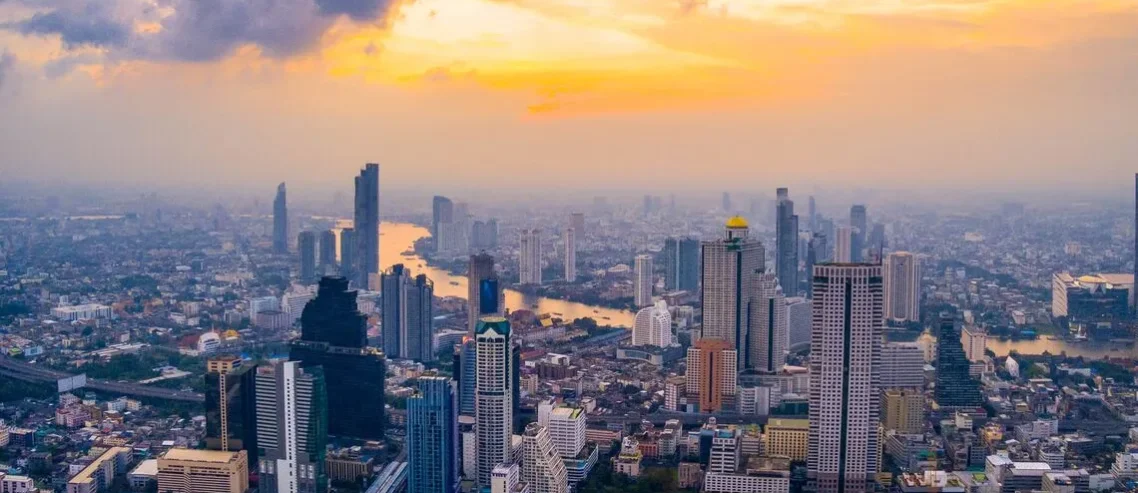Expats Health Insurance Guide to Staying Healthy in Thailand
From vaccinations to choosing the right insurance and navigating the recently implemented dual pricing system for public hospitals, this guide will go through key things to take note of before and after you relocate to Thailand, the Land of Smiles!
Thailand is an amazing tourist destination and one of the best countries to relocate to in Asia. If you’re planning to relocate there as an expat or a digital nomad then it is imperative that you make sure that you’re well protected!
In this Pacific Prime Thailand article, we’ll go through everything you need to know about health insurance as well as things you need to be aware of as an expat and a digital nomad in Thailand.
Before Moving to Thailand
Before you actually go, there are a few things you should take note of. From vaccinations to lower your self risks to navigating the dual pricing system for public hospitals, picking the right insurance to give you the best medical coverage, and a few tips and tricks to make your day-to-day safer.
Before you arrive in Thailand, it is helpful to memorize the emergency contacts. The standard emergency contact in Thailand is 191. However, the Royal Thai Police correspondent may not always be fluent in English. Depending on the situation, you may want to contact the Tourist Police at 1155.
We also suggest you carry copies of important documents related to your health with you to ensure that you receive the most appropriate care. With these documents, doctors and nurses will be able to quickly review your medical history and provide you with the right treatment swiftly.
Before you move you should also get vaccinated for common diseases. This is especially true if you’re not from a tropical region.
Vaccinations for Thailand
Whether you’re moving into Bangkok’s business district or the tranquil rural regions of Thailand, getting certain vaccinations beforehand can not only give you peace of mind but also reduce health risks. Dengue fever vaccination is a good choice as mosquitos are quite rampant in the country.
City Life Vaccinations
For expats and digital nomads staying in the busy city of Bangkok, we suggest vaccinations for illnesses that are more easily contracted in populated areas and cities such as Hepatitis (A and B) and Tetanus. Below is a list of the vaccinations we suggest you take beforehand:
Vaccinations for Rural Retreats
If you’re staying in rural retreats such as Phuket or Chiang Mai, then you need to consider illnesses that can be contracted through mosquitos and contaminated waters such as dengue fever, and malaria. For the rural areas, we generally suggest these five main diseases:
Check out our detailed guide on vaccinations in Thailand for more details on individual diseases and other vaccinations that you should consider before you move to Thailand.
Getting the Right Insurance
Whilst the cost for health care is relatively cheaper in Thailand than the rest of the world, it can still be quite hefty when you have to pay it on your own. That’s why it is important to get the right insurance plan that gives you the coverage you need for your stay whilst still staying on budget.
Expats vs Nomads
With the growing digital nomad trend, Thailand has also become a popular destination for nomads to work in. Although digital nomads and expats both work in a foreign country, due to the duration of their stay, digital nomads may find that they are not eligible for certain plans.

Expat Health Insurance
As the name suggests, expat health insurances are designed specifically for those staying in a foreign country for a long time. These plans are usually tailor-made for specific countries with flexible scope of coverage for expat’s needs and cost less than international health insurances.
Expat health insurance is a great choice for expats as it can give them the comprehensive medical coverage they need to live in the country without having to pay expensive premiums.
Individual Health Insurance
Individual Health Insurance has comprehensive medical coverage which typically includes outpatient coverages too but can be quite pricey. Most companies will offer some sort of international health insurance for expats, but for expats with a larger budget they can get their own plan customized to their needs.
This can also be a great choice for digital nomads who plan to stay in the country for over three months. The downside is that they are generally pricier.
Travel Insurance
For nomads with a tighter budget, travel insurance may be the better choice. Although the coverage may not be as comprehensive as expat insurance, travel insurances are more flexible but still cover medical expenses for illnesses and accidents, making it a popular choice.
Generally, expats require more and longer coverage due to the nature of their stay and travel insurance alone just doesn’t cut it. For expats it is recommended to get individual health insurance.
International Health Insurance
International health insurance typically offers comprehensive medical coverage at a relatively higher price in multiple countries (but be aware that some jurisdictions may be excluded from coverage). The pros of getting an international plan is being insured in most countries in the world.
International health insurances can be a viable option for expats especially with the help of employers. For digital nomads, due to the higher prices, they need to carefully consider whether or not they can afford to stay insured if they go for an international health plan.
Aspiring digital nomads and nomads already in Thailand can also check out our guide on how to pick the right health insurance as a digital nomad for more information.
Insurances for Kids
Expats who are relocating with their family, will be delighted to know that Thailand not only has a diverse selection of schools but also a developed private medical sector! Therefore, It is advised that you get your child under a health insurance plan to fully utilize private healthcare.
There are many benefits to getting health insurance for your child. As children are more susceptible to developing illnesses and more accident prone, opting for a family healthcare plan is a great way to get ahead of the problem and ensure that you have a safety net in place.
Alternatively, you can also get an individual health insurance plan under the child’s name. You can have your child insured from birth until the age of 18. Certain insurers may also allow you to keep the coverage into adulthood or even for life.
Choosing Between Public and Private Hospitals in Thailand as an Expat
The quality of healthcare in Thailand is great. Public hospitals are open to everyone, regardless of their nationality and private hospitals in larger cities are also world-class. Bangkok is even the home to the first internationally accredited hospital in Asia – Bumrungrad International Hospital.
For expats, depending on your insurance coverage, you may want to juggle between public and private hospitals to make the most out of your plan. Whilst public hospitals offer services at affordable prices, they also come with massive queues.
On the other hand, private hospitals offer better services at steeper prices. You generally will have more time with your doctors to talk about your ailments and condition at a private hospital.
Choosing the right hospital can really depend on your insurance plan, which is why it is important to fully understand your plan before you commit to it. You can learn more about finding the right insurance plan and hospitals in our hospital visits as an expat in Thailand guide.
Thailand Hospitals Dual Pricing Explained
In 2019, Thailand expanded dual pricing to include Thai public hospitals allowing hospitals to charge foreign nationalities a higher fee when using their facilities. Since the regulation is still fairly new, it can be hard for an expat to navigate the dual pricing system.
In the dual pricing system, expats fall under Tier 2 pricing which is specifically designed for foreigners living and working in Thailand. To put in perspective of what this means, a spinal MRI would cost approximately THB ฿18,700 (USD $535) for a local (Tier 1) but THB ฿23,735 (USD $679) for an expat (Tier 2).
Conclusion
Thailand is an amazing place to relocate to whether you’re an expat or a digital nomad. The country has a diverse social landscape from sleepless city life to remote tropical paradises. But there are some significant health risks especially to those who are not acclimated to tropical climates.
With the right insurance plan, you can gain access to some of the world-class healthcare services the country can provide. At Pacific Prime Thailand, our experts will help you navigate through the complications and find you the right plan for your needs and your budget.
We partner with some of the best private insurers in Thailand to give you comprehensive options to suit your needs. Contact us today for a free quote.
Frequently Asked Questions
Is healthcare in Thailand good?
Thailand’s healthcare system is considered to be of world-class standard in larger cities. Bangkok is the home to the Bumrungrad International Hospital, the first internationally accredited hospital in Asia. The healthcare system falls off in remote rural areas.
Do expats need health insurance in Thailand?
It is crucial for expats to have health insurance in Thailand. If you find yourself seriously ill during your stay in Thailand, having health insurance can provide coverage to some of the country’s world-class hospitals.
Can expats get insurance in Thailand?
Yes, there are two ways expats can obtain insurance in Thailand. First, they can get personal health insurance. Another way is to get health insurance through their employers.
How much is health insurance in Thailand
According to our Pacific Prime Cost of Health Insurance Report 2023, the average cost of International health insurance in Thailand in 2022 is around USD $3,594.
- What is the Zika Virus? - March 27, 2025
- Getting Rabies Vaccine in Bangkok - March 13, 2025
- 2024 Marriage Equality Bill Impact on Workplaces - July 30, 2024





Comments
Comments for this post are closed.
We'll notify you
when our team replies!